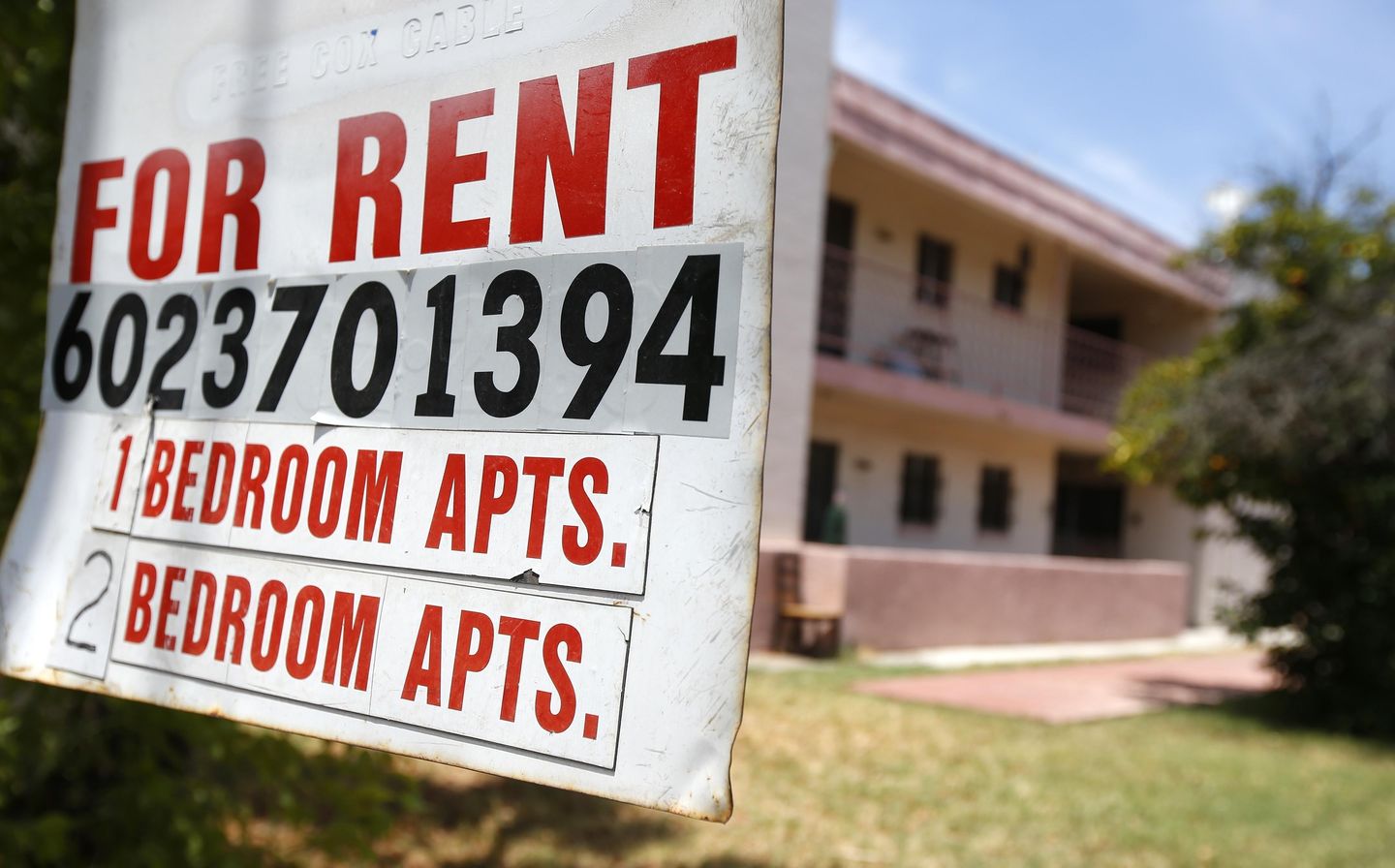
D.C. landlords have lost over $1 billion in unpaid rent due to pandemic-era emergency rules that allowed tenants to ignore their monthly obligations over the past four years, an advocacy group told city lawmakers ahead of a crucial vote.
Members of the Small Multifamily Owners Association, which represents the city’s multifamily housing rental units, shared a report with the figure at a Tuesday city hall rally.
They warned that the D.C. Council’s failure to roll back emergency renter protections after a federal eviction moratorium ended in September 2021 has pushed them to the brink of collapse.
“Protections that were supposed to be temporary got left in place because the council didn’t want to upset tenant activists,” Dean Hunter, CEO of the multifamily group and a representative of the city’s affordable housing providers, told The Washington Times. “Now landlords are stuck housing people for months or even years without rent while cases crawl through the court.”
On Wednesday, city lawmakers are scheduled to vote for the last time on the RENTAL Act. Democratic Mayor Muriel Bowser introduced it in February as part of a push to speed up evictions for delinquent renters back to pre-pandemic timelines.
It remains unclear whether the council will respect that intention in the final version of the legislation it votes on.
D.C. Council Chairman Phil Mendelson, at-large Democrat, estimated during a Tuesday media briefing that 1 in 5 rental units in the District are “economically vacant” — meaning no renters exist or tenants aren’t making their payments.
He pledged to propose an amendment to the bill that would let courts “adjust” the amounts that these tenants owe in unpaid back rent, making it easier for them to stay in the units and start repayment.
“The rent would be paid into the court, so it’s not that the landlord gets it, but we avoid these arrearages,” Mr. Mendelson said. “And I think that’s very important right now with this climate of economic vacancies.”
The Washington Times reached out to the mayor’s office and city lawmakers for comment on the landlords’ report.
Council member Brooke Pinto, a Ward 2 Democrat, called the $1 billion figure “a clear call to adjust our system” and said she plans to support the RENTAL Act for that reason.
“Housing is a fundamental need of our residents, and when tenants don’t pay their rent for months on end, it disallows housing providers from making repairs, paying staff, and operating their units,” Ms. Pinto said in an email. “This is unfair to residents who are paying their rent and has the impact of housing providers — including affordable housing providers — going out of business, which is only going to raise the cost of living even higher.”
In a separate statement, Deputy Mayor for Planning and Economic Development Nina Albert called on the council to pass the bill without any changes.
“We urge the DC Council to take up and pass the RENTAL Act in its original form because it ensures that the District remains an attractive place for investment in affordable housing,” Ms. Albert said. “As we know, the District’s affordable housing community is facing a crisis, and reforms are necessary to protect our existing affordable housing and update our housing laws so we can keep building more housing in the future.”
According to Mr. Hunter, evictions take 18 months to two years for landlords to complete under the extended pandemic policies.
He said the council has largely ignored his association’s concerns about deadbeat renters for the past five years.
“The council has no empathy for the damage they’ve done,” Mr. Hunter added. “That means fewer homes and higher rents for every D.C. resident.”
Some landlords partnering with the Bowser administration on affordable housing projects have already threatened to leave the city.
Washington Business Journal reported in July that Enterprise Community Development, a Maryland-based nonprofit and one of the city’s largest affordable housing providers under the Bowser administration, announced plans to sell five D.C. properties totaling more than 1,000 units.
The nonprofit reported losing $7 million in 2024 due to unpaid rent, up from $1.3 million lost in 2021.
Affordable housing advocates have called on the D.C. Council to modify or reject the RENTAL Act. They say the legislation strips tenants of their ability to resist eviction at a time when rents and living costs have risen faster than wages.
“Mayor Bowser has said she wants to ‘rebalance’ and ‘streamline’ affordable housing with her RENTAL Act proposal,” Amanda Korber, a supervising attorney for Legal Aid DC, wrote in a May analysis. “But instead of fixing problems, this bill could make things worse by taking away important rights renters have and making it easier for landlords to kick people out of their homes.”
In a separate report on Tuesday, the South Carolina-based Bluefield Realty Group estimated that tenants would need to earn at least $48.92 per hour to afford the average $2,544 monthly rent payment for a two-bedroom apartment in the District.
That calculation would leave a household with spouses earning the D.C. minimum wage of $17.95 an hour about $13 short of affording the average two-bedroom apartment each month, even before calculating other living expenses.
“With supply constraints, inflation, and demand continuing to push rents upward, this gap is unlikely to close anytime soon,” Michael Smith, a Bluefield spokesman, said in a statement. “We expect these costs to continue rising, making it even more critical for renters, policymakers, and employers to take action now.”















